2151 Masters Courses in Canada - Find Universities,Deadlines, Eligibility & Fees
You probably know someone who went to Canada to study—or at least thought about it. And it makes sense. A Master's in Canada gives you a world-class degree, work opportunities, and a clear PR pathway, all without the high costs of the US or UK.
Over 220,000 international students choose Canada every year (IRCC 2024), for its top universities like Toronto, McGill, and UBC, and because graduates actually get jobs. Fields like AI, business, engineering, and healthcare are in demand, and with a Post-Graduation Work Permit (PGWP) of up to 3 years, you get plenty of time to find work and settle in.
But is it the right choice for you? What about tuition, scholarships, and living costs? And how does it compare to other countries? Read further as this page covers everything you need to know.
Highlights: Master's in Canada (2025)
Canada is quickly becoming a top destination for international students, thanks to affordable tuition, strong job prospects, and an easy PR pathway. According to Immigration, Refugees and Citizenship Canada (IRCC, 2024), over 60% of international students in Canada transition to permanent residency (PR) after graduation. Plus, with tuition fees 40-50% lower than the USA, many students find Canada to be a cost-effective choice for higher education.
Key Highlights of Master’s in Canada
| Key Factor | Details |
| Duration of Master's Programs | 1-2 years (course-based or thesis-based) |
| Top Universities | University of Toronto, UBC, McGill, University of Waterloo |
| Tuition Fees | $15,000 - $40,000 per year (₹12 - ₹33 lakh) |
| Cost of Living | $10,000 - $18,000 per year (₹8 - ₹15 lakh) |
| Job Prospects | 90% employment rate within six months of graduation (Statistics Canada, 2024) |
| Work Permit | Up to 3 years under Post-Graduation Work Permit (PGWP) |
| PR Pathway | Express Entry & Provincial Nominee Program (PNP) available |
Planning to work in Canada after graduation? Learn about how to apply for PR after studying in Canada for a smooth transition.
Why Choose Master's in Canadas?
- Affordable Education – Compared to the USA or UK, tuition in Canada is more budget-friendly.
- Job Opportunities – Canada has a growing demand for tech, healthcare, and business graduates.
- Easier PR Process – International students can apply for PR through Express Entry or PNP after gaining work experience.
Need funding? Check out scholarships for Indian students in Canada to explore financial aid options.
Types of Master’s in Canada: Which One is Right for You?
With Canada ranking among the top 5 countries for higher education globally (QS Higher Education System Strength Rankings 2024), international students have access to world-class education, internships, and work opportunities.
According to Universities Canada (2024), over 70% of master’s graduates secure employment within three months of graduation, with salaries 20-35% higher than bachelor’s degree holders.
Want to know how Canada’s education system works? Learn about the education system in Canada to understand degree structures and career opportunities.
Types of Master’s Programs in Canada
| Program Type | Duration | Who It’s Best For? |
| Course-Based (Professional Master’s) | 1-2 years | Students seeking practical skills and direct industry placement in IT, Business, or Engineering. |
| Research-Based (Thesis Master’s) | 2 years | Ideal for students interested in academic research, PhD, or innovation-driven fields. |
| Co-op or Internship-Based Master’s | 1.5-2 years | Best for those wanting hands-on industry experience during their degree. Popular in STEM, Finance, and Business Analytics. |
| MBA & Executive Master’s | 1-2 years | Designed for professionals aiming for leadership roles in business, finance, and management. |
- If you want a degree that leads directly to a job, go for a course-based master’s.
- If you’re planning for a PhD, a research-based master’s is the best fit.
Thinking about Canada for your degree? Discover why Canada is a top study destination for international students.
Best Universities for Master's in Canada (2025)
According to the Times Higher Education World University Rankings 2025, seven Canadian universities rank among the top 150 globally, which makes Canada a leading destination for postgraduate education.
Top Universities for Master’s in Canada (2025)
| University Name | QS Ranking 2025 | Top Programs |
| University of Toronto | #21 | Engineering, AI, Data Science, Business |
| University of British Columbia (UBC) | #34 | Computer Science, Environmental Studies, Business Analytics |
| McGill University | #30 | Medicine, Biomedical Engineering, Law |
| University of Waterloo | #44 | Robotics, AI, Software Engineering |
| McMaster University | #80 | Healthcare, Public Health, Engineering |
| University of Alberta | #91 | Petroleum Engineering, AI & ML, Business |
| Western University | #114 | Economics, Finance, Marketing |
| Queen’s University | #125 | Business, Public Policy, International Relations |
| University of Calgary | #135 | Energy Studies, Geosciences, Engineering |
| Simon Fraser University | #152 | Cybersecurity, Game Development, IT |
How to Choose the Right University for Master's in Canada?
- For AI, Machine Learning & Data Science: Choose University of Toronto, UBC, or University of Waterloo.
- For Business & Finance: McGill, Western University, and Queen’s University have strong MBA and finance programs.
- For Healthcare & Biomedical Fields: McMaster University and University of Alberta lead in research and job placements.
- For Energy & Engineering Fields: University of Calgary and University of Alberta are known for petroleum, renewable energy, and geosciences.
One-Year vs. Two-Year Master’s in Canada: Which One is Better?
Master’s in Canada typically lasts 1-2 years, but which duration is right for you? It depends on how fast you want to graduate and enter the job market.
According to IRCC (2024), international students prefer one-year master's programs when aiming for cost savings and quick employment, while two-year programs offer stronger research opportunities and longer post-study work permits (PGWP).
Comparison: One-Year vs. Two-Year Master’s
| Factor | One-Year Master’s | Two-Year Master’s |
| Duration | 8-12 months | 16-24 months |
| Best For | Students who want to graduate faster & enter the workforce quickly | Those who want more in-depth learning, research, or PhD pathways |
| Tuition Fees | Lower (approx. $15,000 - $25,000/year) | Higher (approx. $25,000 - $40,000/year) |
| Post-Study Work Permit (PGWP) | 1 year PGWP | Up to 3 years PGWP |
| Job Prospects | Quick entry into jobs, but might have fewer specialization options | Stronger specialization and research advantages |
If you want to save time and money, a one-year master's is ideal.
If you need more research exposure and a longer work permit, choose a two-year master’s.
Considering a one-year program? Check out Canada’s best 1-year PG diploma and master's courses.
Eligibility Criteria for Master’s in Canada
A Master's in Canada is highly sought after. According to Statistics Canada (2024), international students make up nearly 30% of all master’s enrollments, with business, engineering, and computer science being the most competitive programs.
Need help with language requirements? Check out IELTS for studying in Canada or explore alternatives like TOEFL and PTE.
Basic Eligibility for a Master’s in Canada
| Requirement | Details |
| Bachelor’s Degree | 3- or 4-year degree with a minimum GPA of 3.0 (on a 4.0 scale) |
| English Proficiency | IELTS (6.5+), TOEFL (90+), or PTE (58+) – required for non-native speakers |
| GRE/GMAT | Required for competitive programs in engineering, business, and data analytics |
| Work Experience | Not mandatory, but 1-3 years of experience preferred for MBA and certain technical fields |
| LORs & SOP | 2-3 Letters of Recommendation and a Statement of Purpose detailing career goals |
Struggling with your application? Learn how to craft a winning statement of purpose (SOP) and get expert tips on writing a strong letter of recommendation (LOR).
Application Process for Master’s in Canada
Canada has three primary admission intakes—September (Fall), January (Winter), and May (Summer). The Fall intake is the most competitive, attracting over 70% of international master’s applicants (Universities Canada, 2024).
Step-by-Step Application Process
1. Choose Your University & Program
- Research programs based on fees, job prospects, and PR eligibility.
- Check if your program is available in the Fall, Winter, or Summer intake.
2. Meet Admission Requirements & Prepare Documents
- Ensure you meet the GPA, English proficiency, and GRE/GMAT requirements.
- Gather transcripts, LORs, SOP, resume, and work experience letters (if applicable).
3. Submit Online Applications via University Portals
- Canadian universities process applications directly through their websites.
- Application fees range from $75 - $150 (₹6,300 - ₹12,500) per university.
4. Receive Admission Decision & Secure Your Spot
- Universities take 6-12 weeks to process applications.
- If accepted, you’ll receive an offer letter, which is required for the student visa application.
5. Apply for a Study Permit (Student Visa)
- Once admitted, apply for a Canadian study permit via IRCC.
- Check out the complete student visa process for Canada for step-by-step guidance.
Intake Options for Master’s in Canada
| Intake | Application Deadline | Best For |
| September (Fall) | Dec - March | Most courses available, higher competition, best for scholarships |
| January (Winter) | July - October | Fewer courses, good for those who missed Fall intake |
| May (Summer) | Oct - Feb | Limited programs, best for late applicants in specific fields |
Considering a January or May intake? Learn more about Winter intake in Canada and Summer intake in Canada for application strategies.
Master's in Canada Without GRE/GMAT: Universities & Requirements
Not all Canadian universities require GRE or GMAT scores for master's programs. While business and engineering programs at top schools often ask for them, many universities have waived these tests in favor of evaluating work experience, academic records, and research potential.
A report by Universities Canada (2024) found that over 60% of Canadian universities do not make GRE/GMAT mandatory for master's admissions. Instead, they focus on GPA, professional experience, and recommendation letters.
Confused about eligibility? Learn more about how Canada’s education system evaluates applicants beyond standardized tests.
Top Universities That Do Not Require GRE/GMAT
| University Name | Popular Master’s Programs Without GRE/GMAT |
| University of Toronto | Public Health, Social Work, Environmental Science |
| University of British Columbia (UBC) | Data Science, Nursing, Public Policy |
| McGill University | Law, Political Science, Biomedical Sciences |
| University of Waterloo | Computer Science, Cybersecurity, AI |
| University of Calgary | Geosciences, Public Administration, Education |
| Carleton University | Journalism, International Affairs, Public Policy |
| Simon Fraser University | Communication Studies, Psychology, IT |
| University of Saskatchewan | Agriculture, Biotechnology, Pharmacy |
What Can Replace a GRE/GMAT Score?
- If a program does not require GRE/GMAT, universities evaluate your application using:
- A GPA of 3.0 or higher (on a 4.0 scale) can offset the absence of test scores.
- Many business and tech programs accept 2-5 years of relevant work experience instead of GMAT.
- A solid research portfolio or thesis work can help in research-based master’s programs.
- Having certifications in your field (like PMP, CFA, or Google Data Analytics) can strengthen your application.
- Demonstrating practical experience in relevant industries improves your chances.
Cost of Studying a Master’s in Canada
The cost of pursuing a master’s degree in Canada varies by university, location, and lifestyle choices. On average, tuition fees range between $15,000 - $40,000 per year (₹12 - ₹33 lakh), while the cost of living adds another $10,000 - $18,000 per year (₹8 - ₹15 lakh).
According to Statistics Canada (2024), tuition for STEM and business-related programs is 20-30% higher than for humanities and social sciences. However, co-op programs and part-time work help students recover costs faster.
Want a breakdown of expenses? Check out Canada’s cost of living for students to plan your budget.
Estimated Cost of Master’s Programs in Canada
| Expense Type | Estimated Cost Per Year | Notes |
| Tuition Fees (Public Universities) | $15,000 - $30,000 (₹12 - ₹25 lakh) | More affordable than private universities |
| Tuition Fees (Private Universities) | $25,000 - $40,000 (₹21 - ₹33 lakh) | Business and STEM programs are on the higher end |
| Living Expenses (Housing, Food, Transport) | $10,000 - $18,000 (₹8 - ₹15 lakh) | Higher in cities like Toronto and Vancouver |
| Health Insurance | $600 - $900 (₹50,000 - ₹75,000) | Mandatory for all students |
| Books & Study Materials | $500 - $1,500 (₹41,000 - ₹1.2 lakh) | Varies by course |
| Student Fees (Library, Technology, Athletics, etc.) | $500 - $1,500 (₹41,000 - ₹1.2 lakh) | One-time or annual charges |
| Miscellaneous (Personal, Entertainment, etc.) | $2,000 - $5,000 (₹1.6 - ₹4 lakh) | Depends on lifestyle |
City-Wise Cost Comparison for Master’s Students in Canada
| City | Average Tuition Fees (Annual) | Estimated Living Cost (Annual) |
| Toronto | $25,000 - $40,000 (₹21 - ₹33 lakh) | $18,000 - $24,000 (₹15 - ₹20 lakh) |
| Vancouver | $22,000 - $38,000 (₹18 - ₹31 lakh) | $15,000 - $22,000 (₹12 - ₹18 lakh) |
| Montreal | $20,000 - $35,000 (₹16 - ₹29 lakh) | $12,000 - $18,000 (₹10 - ₹15 lakh) |
| Calgary | $18,000 - $30,000 (₹15 - ₹25 lakh) | $10,000 - $15,000 (₹8 - ₹12 lakh) |
| Winnipeg | $15,000 - $25,000 (₹12 - ₹20 lakh) | $8,000 - $12,000 (₹6 - ₹10 lakh) |
Tip: If you’re looking to save money, cities like Calgary and Winnipeg offer lower living costs and affordable tuition fees, especially for public universities
Cost-Saving Tip: Many students reduce tuition costs by securing scholarships, assistantships, and co-op jobs while studying.
Scholarships for Master's in Canada
The Government of Canada, universities, and private organizations provide fully funded and partial scholarships based on merit, financial need, or research potential.
According to Universities Canada (2024), over 70% of international master's students receive some form of financial aid, bursary, or scholarship to support their education. Many scholarships cover up to 50-100% of tuition fees, while some also provide a living allowance.
Want to apply for scholarships? Check out fully-funded scholarships for eligibility and deadlines.
Top Scholarships for Master’s Students in Canada
| Scholarship Name | Eligibility | Funding Amount |
| Vanier Canada Graduate Scholarships (VCGS) | High-achieving international students in research-based programs | $50,000 per year (₹41 lakh) for 3 years |
| Ontario Graduate Scholarship (OGS) | Master’s students in Ontario universities | $5,000 - $15,000 (₹4 - ₹12 lakh) per year |
| Trudeau Foundation Scholarships | Students pursuing leadership, public policy, or social sciences | Covers full tuition + $40,000 (₹33 lakh) stipend |
| University of Toronto Lester B. Pearson Scholarship | Exceptional academic record & leadership skills | Full tuition + living expenses |
| University of British Columbia International Tuition Award | Master’s students in research-based programs | Up to $3,200 (₹2.6 lakh) per year |
| McGill University Entrance Scholarship | Based on academic merit | $3,000 - $12,000 (₹2.5 - ₹10 lakh) |
| University of Alberta Graduate Entrance Scholarship | Open to all master’s students | Up to $17,500 (₹14.5 lakh) + $10,000 (₹8 lakh) for international students |
Tip: Most universities also offer graduate assistantships (TA/RA positions) where students work as teaching assistants or research associates to earn a stipend and tuition discount.
Best Job-Oriented Master's Programs in Canada
A recent Survey of Graduates by Statistics Canada (2024) found that nearly 90% of master's graduates secure full-time employment within six months, with an average salary increase of 40% compared to bachelor's degree holders.
In fields like AI, engineering, and finance, employment rates are even higher due to strong demand for skilled professionals. The NOC Code system categorizes high-demand occupations, which makes it easier to qualify for PR (Permanent Residency) in Canada.
Want to maximize career prospects? Learn more about the average salary in Canada.
Top Job-Oriented Master’s Programs in Canada
| Program | Industry Demand | Average Salary (Annual) |
| Master’s in Data Science | High demand in AI, machine learning, fintech | $85,000 - $110,000 (₹70 - ₹91 lakh) |
| Master’s in Computer Science | Strong hiring in tech, cybersecurity, software dev | $80,000 - $105,000 (₹66 - ₹87 lakh) |
| Master’s in Business Analytics | Needed in consulting, finance, and e-commerce | $75,000 - $100,000 (₹62 - ₹83 lakh) |
| MBA (Finance, Marketing, HR) | Best for corporate leadership & management roles | $90,000 - $120,000 (₹75 - ₹99 lakh) |
| Master’s in Artificial Intelligence (AI) | Huge demand in automation, robotics, deep learning | $90,000 - $130,000 (₹75 - ₹108 lakh) |
| Master’s in Renewable Energy | Growing industry in Canada’s green energy sector | $75,000 - $95,000 (₹62 - ₹79 lakh) |
| Master’s in Biotechnology | Expanding demand in pharma, medical research | $80,000 - $100,000 (₹66 - ₹83 lakh) |
| Master’s in Cybersecurity | Critical demand in tech, finance, and government | $85,000 - $115,000 (₹70 - ₹95 lakh) |
| Master’s in Engineering (Civil, Electrical, Mechanical) | Infrastructure, tech, and automation hiring growth | $80,000 - $110,000 (₹66 - ₹91 lakh) |
Tip: If PR (Permanent Residency) is your goal, STEM fields offer easier PR pathways under the Canadian Express Entry system.
Work Permit & PR Pathway After Master's in Canada
Canada is one of the easiest countries for international students to transition from a study permit to permanent residency (PR). The Post-Graduation Work Permit (PGWP) allows graduates to gain Canadian work experience, which strengthens PR applications through Express Entry and Provincial Nominee Programs (PNPs).
Need help with your visa? Check the Canada student visa process for study permit details.
Step-by-Step Guide: Post-Graduation Work Permit (PGWP)
The PGWP lets international students work in Canada for up to three years after graduation.
| Course Duration | PGWP Duration |
| Less than 8 months | Not eligible |
| 8 months – 2 years | Equal to course duration |
| 2+ years | Up to 3 years |
PGWP Application Process:
- Graduate from an eligible DLI (Designated Learning Institution).
- Apply for PGWP within 180 days of getting your final transcripts.
- Provide required documents: passport, proof of graduation, and study permit details.
- Pay the application fee ($255 CAD or ₹15,600).
- Processing takes 90–180 days; applicants can work while waiting for approval.
Pathways to PR After a Master’s in Canada
1. Express Entry – Canadian Experience Class (CEC)
- Fastest PR route for PGWP holders with 1+ year of Canadian work experience.
- Requires a minimum CRS score (varies by draw).
2. Provincial Nominee Program (PNP)
- PR pathway through province-specific nomination programs (Ontario, British Columbia, Alberta, etc.).
- Some provinces offer direct PR streams for international graduates.
3. Quebec Experience Program (PEQ)
- Special PR pathway for students who graduate from Quebec universities.
Student Life in Canada: What to Expect?
International students in Canada experience high-quality education, diverse cultures, and job opportunities, but adjusting to costs, weather, and work-life balance is important.
Cost of Living for International Students
On average, students spend $10,000 - $18,000 (₹8 - ₹15 lakh) per year on living expenses.
| Expense Type | Average Monthly Cost |
| Rent (Shared Apartment) | $500 - $1,500 (₹41,000 - ₹1.2 lakh) |
| Food & Groceries | $300 - $600 (₹25,000 - ₹50,000) |
| Transport (Public Transit) | $100 - $150 (₹8,300 - ₹12,500) |
Want more details? Check Canada’s student cost of living.
Weather & Culture
- Winters: Can drop to -20°C in Toronto, Montreal, Calgary.
- Summers: Range from 20-30°C, making Vancouver & Toronto popular.
- Diverse student population; over 50% of students are from India, China, and Nigeria (IRCC, 2024).
Tip: Join student networks to settle in faster.
Balancing Studies & Part-Time Jobs
- Work 20 hours per week during classes, full-time during breaks
- Average wage: $15 - $20 per hour (₹1,200 - ₹1,600)
- Popular jobs: Teaching assistant, research assistant, retail
Tip: Manage your time well to maintain grades and work experience.
- Level of study
- Streams
- Countries
- Cities
- Fees
- Exams Accepted
- Course Duration
- Masters
- Clear All
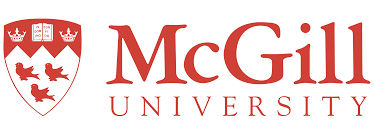
Information Studies (M.I.St.)
McGill University, Canada
DURATION
1 Year 6 MonthsFEES
INR 18.17L/yrEXAMS
-INTAKE SESSION
AUG 2025
More courses at McGill UniversityView All
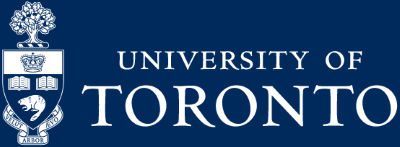
Master of Information
University of Toronto, Canada
DURATION
2 YearsFEES
INR 27.29L/yrEXAMS
-INTAKE SESSION
SEP 2025
More courses at University of TorontoView All
DURATION
3 YearsFEES
INR 43.15L/yrEXAMS
-
DURATION
1 Year 6 MonthsFEES
INR 43.15L/yrEXAMS
-
DURATION
1 YearFEES
INR 43.15L/yrEXAMS
-
DURATION
1 Year 6 MonthsFEES
INR 43.15L/yrEXAMS
-
DURATION
1 Year 6 MonthsFEES
INR 43.15L/yrEXAMS
-

Master Of Applied Science in Biomedical Engineering (MASC)
The University of British Columbia, Canada
University of British Columbia offers the Master Of Applied Science in Biomedical Engineering (MASC), a comprehensive Masters course designed to equip students with the essential knowledge and skills in Biomedical Science. The course combines theoretical foundations with practical applications, enabling students to solve real-world challenges in Biomedical Science. With access to cutting-edge resources and mentorship from industry professionals, students will gain invaluable experience and emerge ready to excel in Biomedical Science careers in jobs such as Biomedical Research Scientist, Medical Laboratory Scientist, Biotechnology Researcher, Biomedical Engineer.
DURATION
2 YearsFEES
INR 6.03L/yrEXAMS
-INTAKE SESSION
SEP 2025
More courses at The University of British ColumbiaView All
DURATION
2 YearsFEES
INR 6.03L/yrEXAMS
-
DURATION
2 YearsFEES
INR 6.03L/yrEXAMS
-
DURATION
2 YearsFEES
INR 6.03L/yrEXAMS
-
DURATION
2 YearsFEES
INR 6.03L/yrEXAMS
-
DURATION
2 YearsFEES
INR 6.03L/yrEXAMS
-
DURATION
2 YearsFEES
INR 6.03L/yrEXAMS
-
DURATION
1 Year 6 MonthsFEES
INR 6.03L/yrEXAMS
-
DURATION
2 YearsFEES
INR 6.03L/yrEXAMS
-

Master of Business Administration
University Canada West, Canada
DURATION
Online:11 MonthsOn-campus:1 Year 3 MonthsFEES
Online: INR 4,50,000On-campus: CAD $29,799

Master of Engineering (Chemical and Materials Engineering)
University of Alberta, Canada
The Master of Engineering (Chemical and Materials Engineering) offered by University of Alberta in CAN is an advanced Masters program designed to provide students with comprehensive knowledge and practical skills in Chemical Engineering. The curriculum is carefully crafted to cover a wide range of topics, ensuring students gain a deep understanding of the subject matter and develop expertise in Chemical Engineering. With a focus on hands-on learning and industry-relevant projects, graduates are well-prepared for successful careers in the Chemical Engineering field. The program's holistic approach and diverse skill set make it highly in demand in CAN. Graduates of Master of Engineering (Chemical and Materials Engineering) from University of Albertacan easily secure jobs in various industries, including positions such as Process Engineer, Chemical Plant Manager, Environmental Engineer, Petrochemical Engineer, Pharmaceutical Process Engineer. This program offers a valuable opportunity for students to excel and thrive in the dynamic world of Chemical Engineering.
DURATION
1 YearFEES
INR 0.00L/yrEXAMS
-INTAKE SESSION
AUG 2025
More courses at University of AlbertaView All
DURATION
1 YearFEES
INR 0.00L/yrEXAMS
-
DURATION
1 Year 6 MonthsFEES
INR 0.00L/yrEXAMS
-
DURATION
1 Year 6 MonthsFEES
INR 0.00L/yrEXAMS
-
DURATION
1 Year 6 MonthsFEES
-EXAMS
-
DURATION
1 YearFEES
-EXAMS
-

Master of Information Science
University of Montreal, Canada
DURATION
2 YearsFEES
INR 13.29L/yrEXAMS
-INTAKE SESSION
AUG 2025
More courses at University of MontrealView All
DURATION
2 YearsFEES
INR 12.40L/yrEXAMS
-
DURATION
2 YearsFEES
INR 12.40L/yrEXAMS
-
DURATION
2 YearsFEES
INR 12.40L/yrEXAMS
-

Master of Engineering Science (MESc) Electrical and Computer Engineering
Western University, Canada
DURATION
-FEES
INR 23.03L/yrEXAMS
IELTS-6.5INTAKE SESSION
SEP 2025
More courses at Western UniversityView All
DURATION
-FEES
INR 23.49L/yrEXAMS
IELTS-6.5
DURATION
-FEES
INR 23.49L/yrEXAMS
IELTS-6.5
DURATION
-FEES
INR 23.49L/yrEXAMS
IELTS-6.5
DURATION
-FEES
INR 24.92L/yrEXAMS
IELTS-6.5
DURATION
-FEES
INR 24.92L/yrEXAMS
IELTS-6.5
DURATION
-FEES
INR 24.92L/yrEXAMS
IELTS-6.5
DURATION
-FEES
INR 32.25L/yrEXAMS
IELTS-6.5

MBA in Technology, Innovation and Entrepreneurship
International Business University, Canada
DURATION
Online:7 MonthsOn-campus:1 Year 4 MonthsFEES
Online: INR 4,50,000On-campus: CAD 25,875

Master of Information Security and Privacy (MISP)
University of Calgary, Canada
DURATION
1 YearFEES
INR 30.78L/yrEXAMS
-INTAKE SESSION
SEP 2025
More courses at University of CalgaryView All
DURATION
2 YearsFEES
INR 5.23L/yrEXAMS
-
DURATION
2 YearsFEES
INR 20.84L/yrEXAMS
-
DURATION
2 YearsFEES
INR 24.33L/yrEXAMS
-
DURATION
1 YearFEES
INR 24.33L/yrEXAMS
-
DURATION
2 YearsFEES
INR 24.33L/yrEXAMS
-
DURATION
2 YearsFEES
INR 24.33L/yrEXAMS
-
DURATION
1 YearFEES
INR 24.33L/yrEXAMS
-

Graduate Certificate in Biblical Studies and Christian Thought
Trinity Western University, Canada
DURATION
-FEES
INR 5.13L/yrEXAMS
IELTS-7.0INTAKE SESSION
SEP 2024
More courses at Trinity Western UniversityView All
DURATION
1 YearFEES
INR 11.12L/yrEXAMS
IELTS-7.0
DURATION
2 YearsFEES
INR 19.80L/yrEXAMS
IELTS-7.0
DURATION
2 YearsFEES
INR 19.80L/yrEXAMS
IELTS-7.5
Recommended articles for you
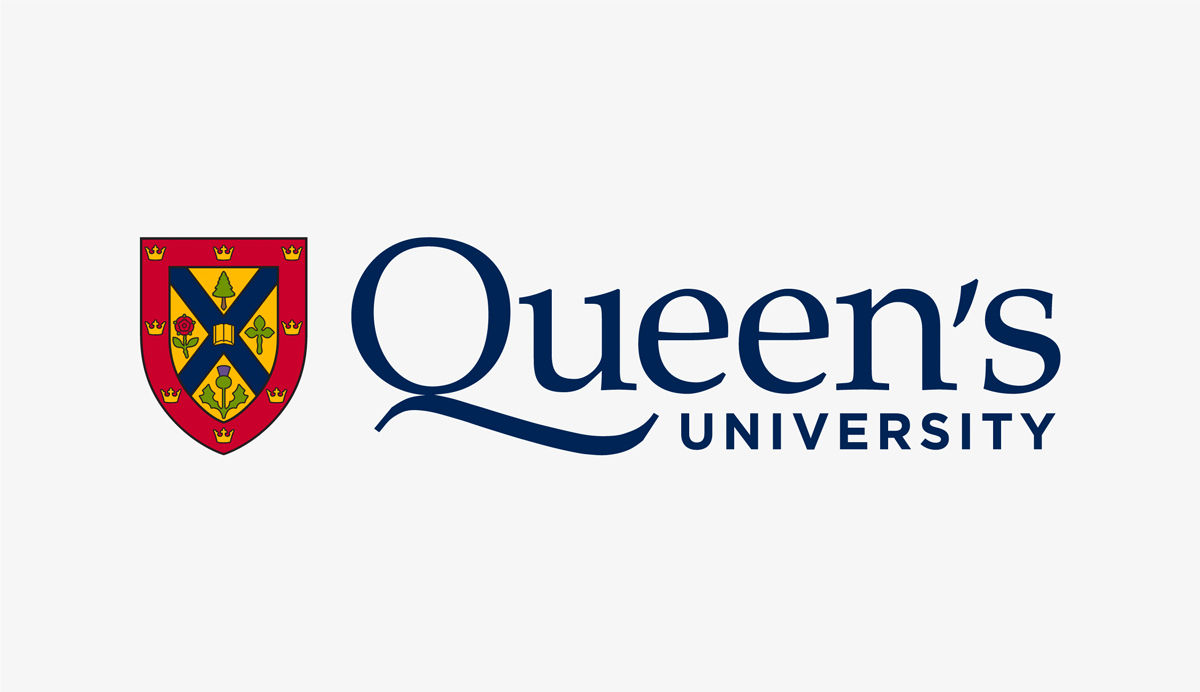
Master of Applied Science in Mechanical and Materials Engineering
Queens University, Canada
DURATION
2 YearsFEES
INR 7.89L/yrEXAMS
-INTAKE SESSION
AUG 2025
More courses at Queens UniversityView All
DURATION
1 YearFEES
INR 7.89L/yrEXAMS
-
DURATION
2 YearsFEES
INR 12.48L/yrEXAMS
-
DURATION
2 YearsFEES
INR 13.88L/yrEXAMS
-
DURATION
1 YearFEES
INR 13.88L/yrEXAMS
-
DURATION
2 YearsFEES
INR 13.88L/yrEXAMS
-

Master of Information Studies (Bilingual) Specialization in Science, Society and Policy
University of Ottawa, Canada
DURATION
-FEES
INR 22.36L/yrEXAMS
IELTS-6.5INTAKE SESSION
SEP 2025
More courses at University of OttawaView All
DURATION
2 YearsFEES
INR 28.96L/yrEXAMS
IELTS-7.0
DURATION
2 YearsFEES
INR 28.96L/yrEXAMS
IELTS-7.0
DURATION
2 YearsFEES
INR 28.96L/yrEXAMS
IELTS-7.0
DURATION
2 YearsFEES
INR 28.96L/yrEXAMS
IELTS-7.0
DURATION
2 YearsFEES
INR 30.99L/yrEXAMS
IELTS-6.5
DURATION
2 YearsFEES
INR 30.99L/yrEXAMS
IELTS-6.5
DURATION
2 YearsFEES
INR 38.14L/yrEXAMS
IELTS-6.5

MSc in Computing Science
Simon Fraser University, Canada
DURATION
2 YearsFEES
INR 7.37L/yrEXAMS
IELTS-7.0INTAKE SESSION
JAN 2026
More courses at Simon Fraser UniversityView All
DURATION
1 Year 3 MonthsFEES
INR 9.22L/yrEXAMS
IELTS-7.0
DURATION
2 YearsFEES
INR 7.37L/yrEXAMS
IELTS-7.0
DURATION
2 YearsFEES
INR 7.37L/yrEXAMS
IELTS-7.0
DURATION
2 YearsFEES
INR 7.37L/yrEXAMS
IELTS-7.0
DURATION
2 YearsFEES
INR 7.62L/yrEXAMS
IELTS-7.0
DURATION
1 Year 3 MonthsFEES
INR 10.03L/yrEXAMS
IELTS-7.0
DURATION
2 YearsFEES
INR 5.92L/yrEXAMS
IELTS-7.0

Master of Applied Science In Civil Engineering
University of Victoria, Canada
The Master of Applied Science In Civil Engineering offered by University of Victoria is a specialised Masters course that delves into the intricacies of Civil Engineering. This course covers a wide range of topics enabling students to develop a deep understanding of the field. Through a combination of theoretical learning and practical applications, students will gain the skills necessary to tackle real-world challenges in Civil Engineering. The course is designed to foster critical thinking, problem-solving abilities, and effective communication skills. Upon completion, graduates will be well-prepared to embark on successful careers in Structural Engineer, Geotechnical Engineer, Transportation Engineer, Water Resources Engineer, Environmental Engineer, Construction Engineer and make meaningful contributions to the industry.
DURATION
2 YearsFEES
INR 5.03L/yrEXAMS
-INTAKE SESSION
SEP 2025
More courses at University of VictoriaView All
DURATION
1 YearFEES
INR 19.71L/yrEXAMS
-
DURATION
2 YearsFEES
INR 3.10L/yrEXAMS
-
DURATION
2 YearsFEES
INR 3.10L/yrEXAMS
-
DURATION
2 YearsFEES
INR 3.10L/yrEXAMS
-

MBA
University of Sherbrooke, Canada
Master of Business Administration is an advanced masters course offered by University of Sherbrooke, Canada in the field of MBA. It is designed to provide students with comprehensive knowledge and practical skills in various aspects of MBA, preparing them for successful careers in this dynamic industry. The course curriculum is carefully crafted to cover a wide range of topics, ensuring that students gain a deep understanding of the subject matter and develop the necessary expertise to excel in MBA field.
DURATION
1 Year 6 MonthsFEES
INR 14.80L/yrEXAMS
-INTAKE SESSION
SEP 2025
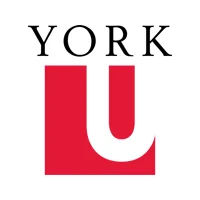
MA Information Systems and Technology
York University, Canada
DURATION
1 YearFEES
INR 12.03L/yrEXAMS
-INTAKE SESSION
SEP 2025
More courses at York UniversityView All
DURATION
1 Year 7 MonthsFEES
INR 12.03L/yrEXAMS
-

Information Systems Security (MASc)
Concordia University, Canada
DURATION
2 YearsFEES
-EXAMS
-INTAKE SESSION
SEP 2025
More courses at Concordia UniversityView All
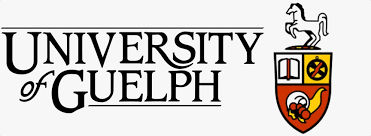
Master of Cybersecurity & Threat Intelligence (MCTI)
University of Guelph, Canada
DURATION
2 YearsFEES
INR 14.73L/yrEXAMS
-INTAKE SESSION
NOV 2025
More courses at University of GuelphView All

Master of Computer Science
Carleton University, Canada
DURATION
2 YearsFEES
INR 25.93L/yrEXAMS
IELTS-6.5INTAKE SESSION
SEP 2025
More courses at Carleton UniversityView All
DURATION
2 YearsFEES
INR 27.03L/yrEXAMS
IELTS-6.5
DURATION
2 YearsFEES
INR 22.40L/yrEXAMS
IELTS-6.5
DURATION
2 YearsFEES
INR 22.40L/yrEXAMS
IELTS-6.5
DURATION
2 YearsFEES
INR 27.03L/yrEXAMS
IELTS-6.5
DURATION
2 YearsFEES
INR 32.37L/yrEXAMS
IELTS-6.5
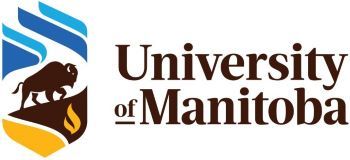
Master of Engineering in Electrical and Computer Engineering
University of Manitoba, Canada
DURATION
2 YearsFEES
INR 7.39L/yrEXAMS
-INTAKE SESSION
SEP 2025
More courses at University of ManitobaView All
DURATION
2 YearsFEES
INR 7.39L/yrEXAMS
-
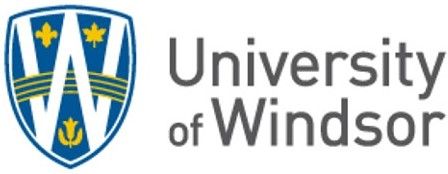
M.Sc. in Computer Science
University of Windsor, Canada
DURATION
-FEES
INR 9.85L/yrEXAMS
IELTS-6.5INTAKE SESSION
SEP 2025
More courses at University of WindsorView All
DURATION
-FEES
INR 9.85L/yrEXAMS
IELTS-6.5
DURATION
-FEES
INR 14.56L/yrEXAMS
IELTS-6.5
DURATION
-FEES
INR 14.56L/yrEXAMS
IELTS-6.5

Master of Applied Science in Software Engineering
Memorial University of Newfoundland, Canada
DURATION
1 Year 4 MonthsFEES
INR 4.06L/yrEXAMS
-INTAKE SESSION
SEP 2025
More courses at Memorial University of NewfoundlandView All
TRENDING SEARCHES
- Masters in Psychology in Canada
- Masters in Pharmacy in Canada
- Masters in Architecture in Canada
- Masters of Law in Canada
- Masters in Chemical Engineering in Canada
- Masters in Civil Engineering in Canada
- Masters in Economics in Canada
- Masters in Education in Canada
- Masters in Mechanical Engineering in Canada
- Masters in Computer Science in Canada
- University of Manitoba
- University of Toronto
- University Canada West
- University of Windsor
- University of Alberta
- University of Saskatchewan
- Algoma University
- University of British Columbia
- Trent University
- University of Ottawa
- Thompson Rivers University
- Atmospheric Studies in Canada
- Architecture Courses in Canada
- Astrophysics in Canada
- Arts Courses in Canada
- Architecture and Urban Environment in Canada
- Language in Canada
- Agriculture General Studies in Canada
- Agricultural Business and Operations in Canada
- Accounts and Finance in Canada
- Agriculture and Food Science in Canada
- Area Studies in Canada
- Advertising in Canada
- Animal Science in Canada
- Advanced Computing in Canada
- Archaeology Courses in Canada
- Architectural Engineering in Canada
- Agriculture Services in Canada
- Aerospace Engineering in Canada
- Architecture and Environmental Design in Canada
- Architectural Technology in Canada
- Medical Courses in Canada
- Masters in Marketing in Canada
- Accounting Courses in Canada
- Masters in Supply Chain Management in Canada
- Masters in Engineering Management in Canada
- Physiotherapy Courses in Canada
- Masters in Data Science in Canada
- Business Management Courses in Canada
- Masters in Management in Canada
- Data Science Courses in Canada
- Supply Chain Management Courses in Canada
- Biotechnology Courses in Canada
- Business Analytics Courses in Canada
- Finance Courses in Canada
- Management Courses in Canada
- Bachelors in Dentistry in Canada
- Bachelors in Civil Engineering in Canada
- Bachelors in Chemistry in Canada
- Bachelors in Business in Canada
- Bachelors in Architecture in Canada
- Bachelors in Electrical Engineering in Canada
- Bachelors in Automobile Engineering in Canada
- Bachelors in Design in Canada
- Bachelors in General Science in Canada
- Bachelors in Economics in Canada
- BA in Canada
- Bachelors in Environmental Engineering in Canada
- Bachelors in Dance in Canada
- Bachelors in Computer Science in Canada
- Bachelors in Commerce in Canada
- Bachelors in Education Learning in Canada
- Bachelors in Education in Canada
- Bachelors in Chemical Engineering in Canada
- Bachelors in Archaeology in Canada
- Bachelors in Biomedical Engineering in Canada
- Study in Canada
- Courses in Canada
- Universities in Canada
- Bachelors in Canada
- Masters in Canada
Disclaimer
All information provided on this page is for general use and upGrad Abroad is not responsible for any errors or omissions. The Universities involved in this Program are accredited/recognized in the countries where they are established. Relevant terms and conditions apply.Any action taken upon the information found on this website is strictly at your own risk.
